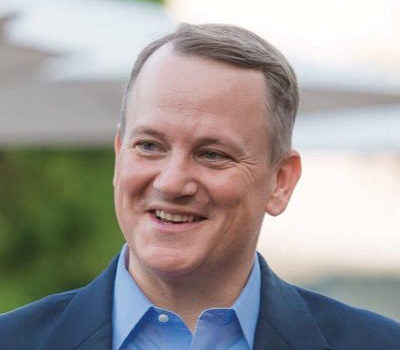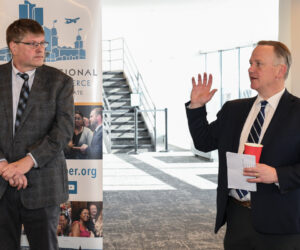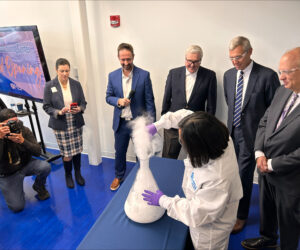Business Leaders Call for Transit Planning on Rail Line
On March 1, 2020, one of the biggest challenges facing major Massachusetts employers was how to reliably get their employees to work as they battled the worst traffic congestion in the country. Just one short week later, COVID-19 changed the conversation. The debate over transportation seemed to evaporate as everything about how we live, work, and commute changed. However, stopping the urgent debate about our state’s transportation problems only delays the inevitable. Now is the time for us to create change that will make our state stronger for decades to come.
The Allston I-90 Interchange Project has the potential to do more than simply improve a small portion of the Mass Pike. This significant and important development, if done right, can offer a double victory of more safely getting commuters from the west into Boston and Cambridge, and the other way around. While MassDOT officials have taken steps in the right direction with their proposals, they fail to go the final mile on transit improvements.
Transportation Secretary Stephanie Pollack has said all three design options for the Allston I-90 Interchange Project “do not preclude” future transit on the Grand Junction.
The Grand Junction is a rail bridge over the Charles River that connects to Cambridge and North Station.
Advocates have taken issue with that claim asserting that only the all at-grade solution will “enable” transit on the Grand Junction by forcing the state to reconstruct a small rail bridge over Storrow Drive. Regardless of the rhetoric, neither option will get commuters on the Grand Junction for at least a generation.
As we arrive at the 11th hour after six years of analysis and decision making, we call on Secretary Pollack and MassDOT to make a real plan about how the state will incorporate transit on the Grand Junction – to make sure that our future does more than just “not preclude” the possibility of transit. This is a complex project with a lot of stakeholders at the table and one of the things we all agree on — from Worcester to Metrowest to Cambridge is that transit on the Grand Junction is the right thing to do for our environment, for our communities, and for our economy.
With historically low ridership it’s fair to ask: is transit still part of the equation? Well, as the leaders of three major business organizations, we’re here to tell you – it is. We need safe, reliable transit to get our economy back on track, meet the challenges of climate change, future-proof for further growth, and address equity and access to jobs across the Commonwealth.
We have the opportunity to lay the track for rail service that would connect, for the first time, our growing innovation economies in Worcester, Metro-West, Harvard’s Allston development, Kendall Square, and North Station. Innovation districts must continue to collaborate if we are going to build a better future. Imagine what this type of investment would look like for the average commuter. We could transform downtown Worcester into a restaurant and retail hub, open up jobs to the east and west for commuters in Worcester or Boston (and all the towns in between), and usher folks into Kendall Square’s life sciences and technology epicenter. We’ll see less crowding on trains, it will be easier to visit the Aquarium or catch a WooSox game, and we’ll create vital connections for everyone in between.
The environmental benefits of adding rail service to Grand Junction will help us reach our state aspirations to “move people, not cars” more effectively. By electrifying a railway that runs adjacent to the highway, not only are we creating new options for people to get to work, but we are reducing greenhouse gas emissions and the number of cars on the road. The relationship between the health of the environment and the health of the community cannot be overlooked here. COVID-19 and the real risk of respiratory diseases has laid bare the need to make our air cleaner for everyone.
Transit on the Grand Junction is a once-in-a-generation opportunity to build a sustainable, equitable, and connected future for the Commonwealth, one we’ll need sooner than later. Let’s not let it pass us by.
STORY AUTHORS
Timothy Murray, President and CEO Worcester Regional Chamber of Commerce
C.A. Webb, President, Kendall Square Association
Robert Coughlin, President and CEO MassBIO





